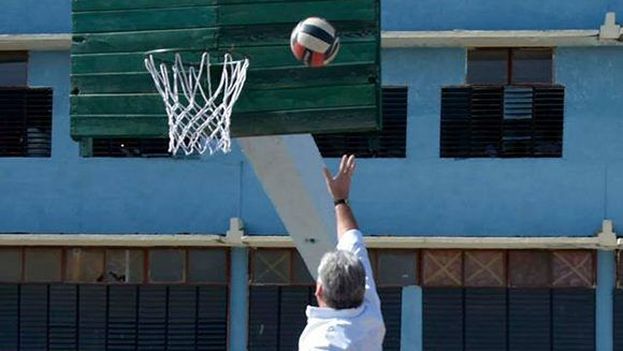
![]() 14ymedio, Yoani Sanchez, Havana, 16 October 2018 — The first months in the highest office of the nation have been frantic for Miguel Diaz-Canel. We have seen him touring industrial zones, visiting several provinces, dancing in New York and even establishing a Twitter account. All these actions are aimed at creating an image of a modern president close to the people, an illusion that ends as soon as he opens his mouth.
14ymedio, Yoani Sanchez, Havana, 16 October 2018 — The first months in the highest office of the nation have been frantic for Miguel Diaz-Canel. We have seen him touring industrial zones, visiting several provinces, dancing in New York and even establishing a Twitter account. All these actions are aimed at creating an image of a modern president close to the people, an illusion that ends as soon as he opens his mouth.
The man who in his teens sang songs by Silvio Rodríguez, who listened to The Beatles and earned a degree in a profession with a strong pragmatic foundation — electrical engineering — wants to connect with those generations of Cubans who have turned their backs on politics, tired of the immobility and the outdated thinking of the governing elite.
To achieve that connection, Díaz-Canel has turned to gestures that range from the simple to the grandiloquent. In some of them he is accompanied by his wife, going to receptions, events and meeting with Hollywood celebrities during his visit to the United Nations in the United States. For a people who, for nearly six decades, did not know – for certain – who the president’s wife was or whether he liked movies, this alone marks a difference.
Going from a vist to La Demajagua in Granma province, to the other end of the Island, in Pinar del Río, in just a few hours, is also a novelty. Our octogenarian leaders moved very slowly or did not move at all, as when Hurricane Irma devastated part of the north central coast and Raul Castro did not visit the affected areas but preferred to mask his absence with written and televised messages.
The opening of a Twitter account on October 10 also marks a new hallmark for Díaz-Canel, because he becomes the first Cuban ruler in more than half a century to have a direct channel, without intermediaries, with the population. In other words, if a resident of Central Havana decides to complain on that social network about the serious problems with the water supply and street paving that characterize that district, the president will no longer be able to say that he did not know about it.
Unlike the Castro brothers who could always argue that they were not aware of the difficulties that Cubans were experiencing every day, or the desire of our emigrants to recover all their rights as citizens, Díaz-Canel cannot claim that the information never got to him or that some undisciplined official did not pass on the details. He is on Twitter and cannot hide what he hears about.
Now, all those attempts to present him as just like us, or as someone who arrives with fresh ideas, collapse as soon as he speaks in front of a microphone. At that moment, a twentieth-century politician emerges, with stereotypical and outdated ideas, with a not at all modern vision of the world and, what’s worse, anchored to a series of commitments made with his predecessors that leave him little or no room to maneuver.
If, on the outside, he wants to show himself as a good-natured and understanding statesman, his words show that his entire discourse is built on a rancid intolerance. We have seen him, before being handpicked as president, rail against the independent press and threaten it with greater censorship; we have heard him denigrate private cultural productions and even affirm at the United Nations that his Government represents “continuity, not rupture.”
To top it off, he has filled his Twitter account with slogans and calls to end the US embargo in a boring singsong that can barely connect with anyone other than the forced workers of state media and other institutions that have been given the task of following the president’s timeline. In that social network the partisan positions and the militant language are immediately noticed and what is pure propaganda cannot be considered spontaneous.
Díaz-Canel is a man caught between the image he wants to project and the agenda his government follows. He wants to appear as a statesman who looks to the future and is capable of facing the arduous tasks that urgently need to be addressed in the Cuban reality, however, he can not contradict or criticize his predecessors even the slightest bit, because they are precisely the ones that have raised him to the power.
The new president must follow the course of the leaders of the Communist Party and accept it, or at least pretend to like it and agree. If he wants to maintain his position, he is obliged to wear a mask of fidelity and docility, delivering a demeaning discourse that is half a century behind. The problem is that when you wear a mask for a long time, it ends up becoming your face, the only skin that remains after years of pretending.
______________________
The 14ymedio team is committed to serious journalism that reflects the reality of deep Cuba. Thank you for joining us on this long road. We invite you to continue supporting us, but this time by becoming a member of 14ymedio. Together we can continue to transform journalism in Cuba.
